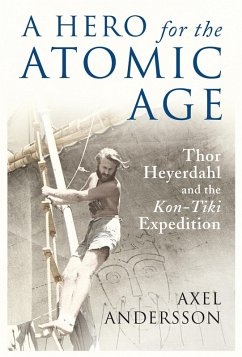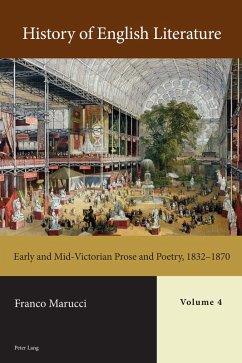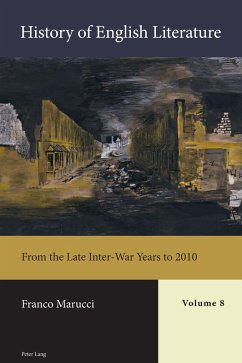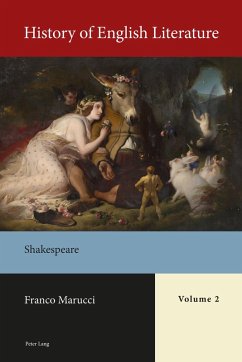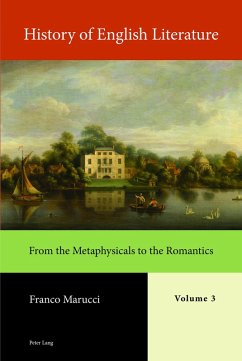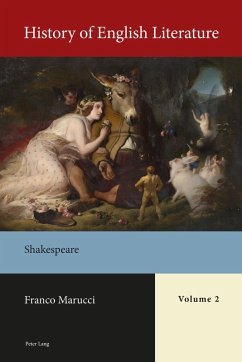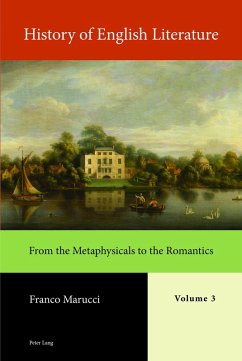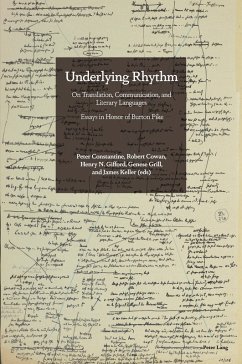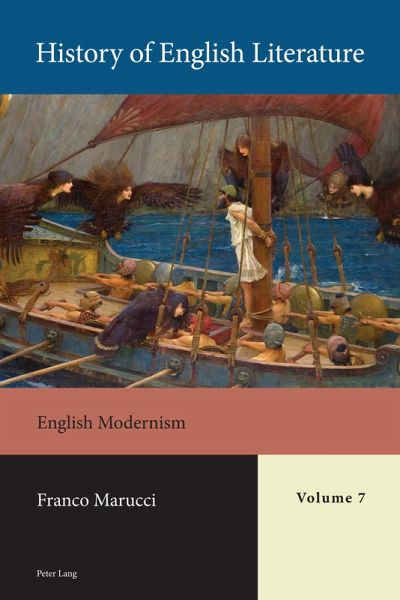
History of English Literature, Volume 7 - eBook (eBook, PDF)
English Modernism
Versandkostenfrei!
Sofort per Download lieferbar
112,95 €
inkl. MwSt.
Weitere Ausgaben:

PAYBACK Punkte
56 °P sammeln!
For ordering the hardcover version of this book, please contact orders@peterlang.com (Retail Price: £100.00, $151.90).History of English Literature is a comprehensive, eight-volume survey of English literature from the Middle Ages to the early twenty-first century. This reference work provides insightful and often revisionary readings of core texts in the English literary canon. Richly informative analyses are framed by the biographical, historical and intellectual context for each author.Volume 7 is dedicated to the four main figures of English Modernism. It opens by discussing 'interstitial...
For ordering the hardcover version of this book, please contact orders@peterlang.com (Retail Price: £100.00, $151.90).
History of English Literature is a comprehensive, eight-volume survey of English literature from the Middle Ages to the early twenty-first century. This reference work provides insightful and often revisionary readings of core texts in the English literary canon. Richly informative analyses are framed by the biographical, historical and intellectual context for each author.
Volume 7 is dedicated to the four main figures of English Modernism. It opens by discussing 'interstitial' novelists, such as Galsworthy, Bennett, Wells and Forster; essayists like Chesterton; and the war poets. The study then turns to a close analysis of the key writers of the period: T. S. Eliot is looking for 'roots' and the anchors for a modern society facing dissolution; D. H. Lawrence is the exponent of a Modernism of contents rather than of forms, which undermines the aesthetics of the movement; Joyce is the builder of a 'palace of art', with an archetypal plot each time updated and stylistically more refined; and Virginia Woolf is, finally, the writer who pursues the utopia of the finished work, the metaphor of her life.
History of English Literature is a comprehensive, eight-volume survey of English literature from the Middle Ages to the early twenty-first century. This reference work provides insightful and often revisionary readings of core texts in the English literary canon. Richly informative analyses are framed by the biographical, historical and intellectual context for each author.
Volume 7 is dedicated to the four main figures of English Modernism. It opens by discussing 'interstitial' novelists, such as Galsworthy, Bennett, Wells and Forster; essayists like Chesterton; and the war poets. The study then turns to a close analysis of the key writers of the period: T. S. Eliot is looking for 'roots' and the anchors for a modern society facing dissolution; D. H. Lawrence is the exponent of a Modernism of contents rather than of forms, which undermines the aesthetics of the movement; Joyce is the builder of a 'palace of art', with an archetypal plot each time updated and stylistically more refined; and Virginia Woolf is, finally, the writer who pursues the utopia of the finished work, the metaphor of her life.
Dieser Download kann aus rechtlichen Gründen nur mit Rechnungsadresse in A, D ausgeliefert werden.





